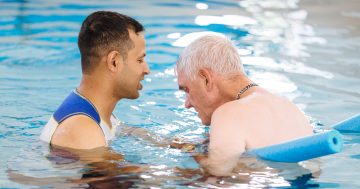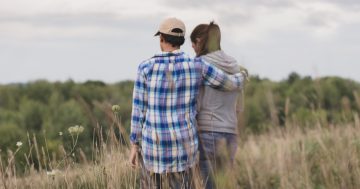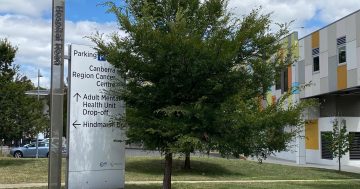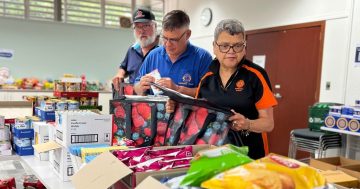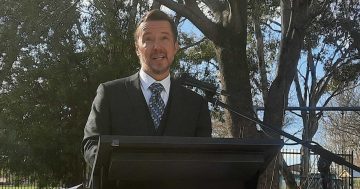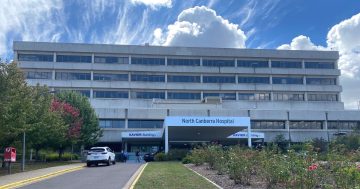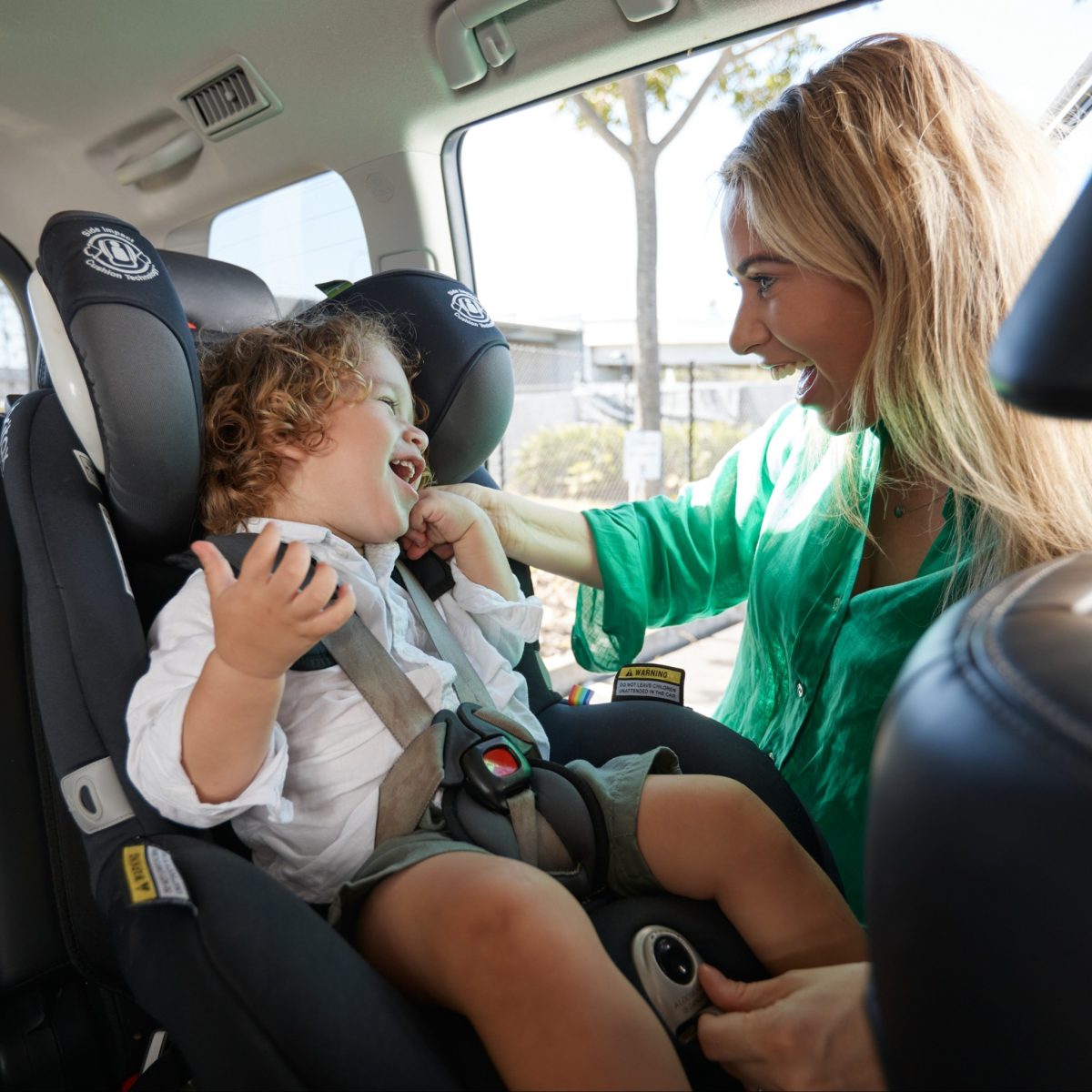
KidSafe ACT, which provides services such as car seat safety checks, is one of the non-government community health organisations that has received a one-off funding boost. Photo: Facebook / KidSafe.
The ACT Government has found the money to help keep some of Canberra’s non-government community health organisations afloat, but some are critical there isn’t more surety for their futures.
The one-off $1.65 million cash injection will be spread between 23 organisations (full list with some cost breakdowns below), along with another $350,000 for equipment at the Chifley Health and Wellbeing Centre gym.
Health Minister Rachel Stephen-Smith said the government recognised many of these organisations were facing cost pressures and growing demand for their services.
“This funding boost recognises these challenges and will support the ongoing delivery of vital services over the next year,” she said.
“The ACT Government has been working with a range of organisations to better understand their individual circumstances and concerns over the past few months.
“This one-off funding will meet their immediate needs as we continue to engage with the wider sector on the findings of previous reports and recommendations.”
The sector has welcomed the boost, but criticism remains that there needs to be more certainty for these organisations in the future.
Arthritis ACT CEO Rebecca Davey said her organisation was receiving $100,000 but said it really needed to be built into their base funding.
“The reality is if it is just a one-off, we’ll be back in the same situation in 12 months’ time,” she said.
The organisation will use the money to deliver hydrotherapy on the southside, which has recently been scaled back due to financial constraints.
To remain viable, Arthritis ACT is considering a private/NGO partnership for their pools where ACT Arthritis provides the staff, but the pool has to charge clients directly.
“The reality is costs are just going to continue to rise and we can’t keep going around this cycle of pulling out to force a decision,” Ms Davey said.
She urged the government to consider funding, especially for health areas of chronic conditions, in terms of population growth rather than the consumer price index (CPI).
“Essentially, our grants need to be indexed not only to CPI rises but also to community growth,” Ms Davey said.
“It will continue to be a system of first in best dressed until that is sorted, meaning those that got in years ago will receive services and newly diagnosed people will miss out.”
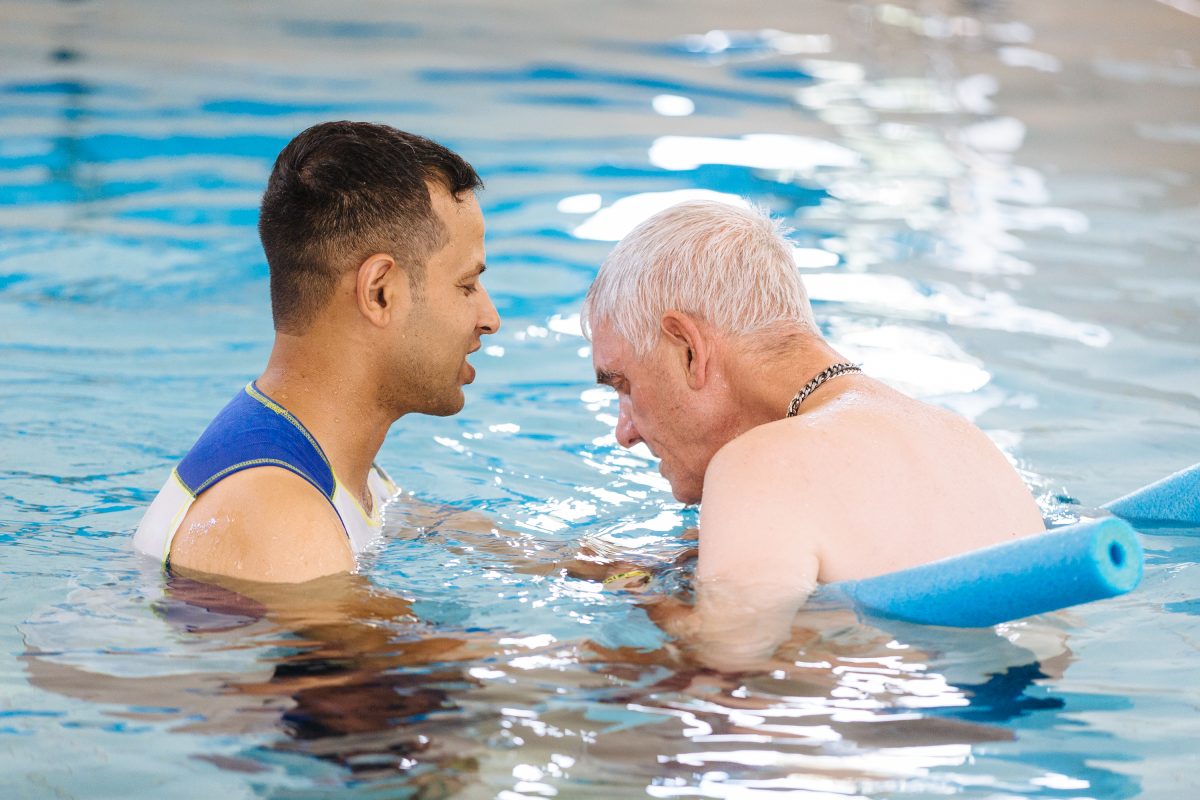
Arthritis ACT will use its funding boost to help facilitate hydrotherapy sessions in Canberra’s south. Photo: Hartley Life Care.
KidSafe ACT is another community organisation to benefit from the new funding.
CEO Francis Ventura said it had been on track to close at the end of this year due to funding constraints, so this money would help “keep our doors open”.
“However, there is still a need for longer-term certainty and an increase to capacity so that we can better meet the needs of Canberrans,” she said.
KidSafe ACT has proposed an increase of recurrent funding to $400,000 per year, which Ms Ventura said was less than 5 per cent of what would be provided to the horse racing industry next financial year.
“While a portion of our revenue comes from service provision and sales, this is nowhere near sufficient to cover even partial expenses, meaning that an investment from the government is needed.
“Given that Kidsafe delivers a critical public service that helps to keep children alive and away from emergency rooms, that support through public funding is justifiable.”
Ms Ventura said there was scope for funding to come from other areas of government, such as transport and education.
KidSafe ACT proposed setting up a Safety Education Program in December in all schools focused on safety at home, school and play. Areas of focus would include the dangers of swallowing button batteries, running onto a driveway without looking, and jumping off high sections of the playground.
It’s been costed at $50,000 per year to cover all of Canberra’s preschools.
KidSafe ACT has also proposed setting up a permanent drop-in centre at North Canberra Hospital (to improve access for families in northern Canberra) and an additional centre in Mitchell.
The organisation currently has its centre in Pearce – an office space that was once a storage room for an art classroom.
The funding breakdown includes $59,052 for KidSafe ACT, $25,000 for Interchange Health Co-op, $100,000 for Arthritis ACT, $60,000 for Companion House, $90,439.26 for Directions Health Care and $63,220 for Palliative Care ACT.
No breakdowns were provided for the other organisations included in the announcement: Asthma ACT, the Australian Breastfeeding Association, Capital Region Cancer Relief, Diabetes Australia, Epilepsy ACT, the Gugan Gulwan Youth Aboriginal Corporation, the Haemophilia Foundation, MSI Australia, the RSI Overuse Foundation and Women’s Health Matters.
Another part of the package is $500,000 for the following providers under the Community Assistance and Temporary Supports (CATS) program: ADACAS, Anglicare, Capital Region Community Services, Carers ACT, Community Services #1, Life Without Barriers and Northside Community Services.
The Chifley Health and Wellbeing Centre closed in April, but the government is expected to announce a new service provider shortly.












